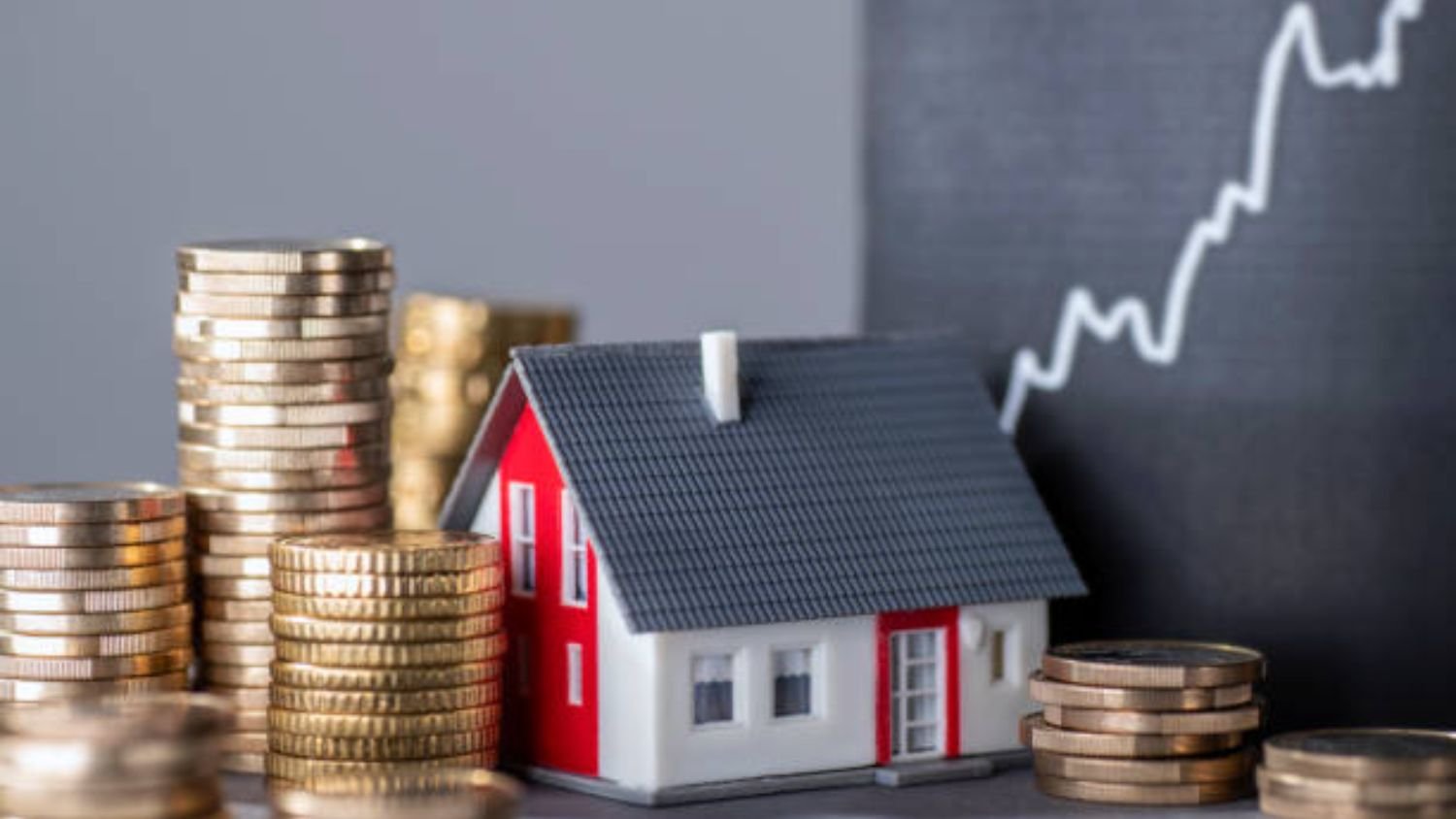Buying a house is a significant financial goal for many people, but saving up enough money for a down payment and other expenses can be challenging. With the housing market constantly changing and prices rising, it can seem impossible to save for a house in 2023.
However, with careful planning and a few simple strategies, it is possible to make your dream of homeownership a reality. In this article, we will discuss key ways to save for a house in 2023, helping you to stay on track and achieve your goal.
So if you’re wondering how to save for a house in 2023, keep reading for valuable insights and practical tips to help you get there.
Table of contents
Why You Should Save for a House
Saving for a house can be a smart financial decision for several reasons. First and foremost, owning a home provides a sense of stability and security that renting cannot match. When you own a home, you can customize it to your liking and be free to make changes without seeking approval from a landlord.
Additionally, owning a home is often seen as a good investment. Over time, the value of a well-maintained property tends to increase, providing the potential for long-term financial gain. Homeownership also allows you to build equity, which can be used to secure future loans or as a source of financial stability in retirement.
Buying a home can also be a way to reduce your monthly expenses. While purchasing a home typically comes with upfront costs, such as a down payment and closing costs, owning a home can often be less expensive than renting in the long run. Monthly mortgage payments are often lower than monthly rent payments, and homeownership also provides tax benefits such as deductions for mortgage interest and property taxes.
Finally, owning a home allows one to build roots in a community and create a sense of belonging. When you own a home, you have a stake in the neighborhood and are more likely to become involved in local activities and events.
Should I Rent or Buy a House?
Deciding whether to rent or buy a house is a significant financial and lifestyle decision. Both options have pros and cons, so considering your specific circumstances before deciding is essential.
When deciding whether to rent or buy a house, it is important to assess your financial situation. Purchasing a house requires a substantial down payment and ongoing costs, such as mortgage payments, property taxes, and maintenance. Renting may be better if you have limited savings or an unstable income. However, buying may be a good investment if you have enough savings for a down payment and can afford ongoing costs.
Another important factor to consider is your long-term plans. A house can be a good investment if you stay in the same location for several years. However, renting may be a better option if you are uncertain about your plans or need the flexibility to move frequently.
Maintenance and repairs are other considerations when deciding whether to rent or buy a house. As a homeowner, you are responsible for maintenance and repairs, which can be expensive and time-consuming. Renting may provide a more hassle-free lifestyle, as maintenance and repairs are typically the landlord’s responsibility.
Lastly, it is important to consider equity and appreciation. Homeownership can build equity over time and provide potential appreciation in value. However, the housing market can be unpredictable, and there is no guarantee that your home will increase in value.
What to Do First Before Buying a House
Buying a house is a significant financial and emotional decision. Before taking the plunge, several important steps must be taken to ensure you are prepared and informed. Here are some things to do before buying a house:
- Assess your finances: Before you start house hunting, closely examine your finances. Determine how much you can afford to spend on a house, including the down payment, closing costs, and ongoing expenses like mortgage payments, property taxes, and maintenance. Make sure to budget for unexpected expenses as well.
- Get pre-approved for a mortgage: Getting pre-approved for a mortgage will give you a realistic idea of how much you can borrow, which can help narrow down your home search. It also shows sellers you are serious and can afford your home.
- Research the housing market: Research the local housing market to understand the prices of homes in the area you are interested in. This can help you determine what you can afford and what features you should look for in a home.
- Hire a real estate agent: A real estate agent can be a valuable resource in the home-buying process. They can provide information about the local housing market, help you find homes that fit your criteria, and negotiate on your behalf.
- Attend open houses and viewings: Attend open houses and viewings of homes that fit your criteria. Take note of any issues or concerns, such as maintenance or repairs that may be needed.
- Get a home inspection: Before making an offer on the house, get a professional home inspection to identify any issues or potential problems with the property.
- Make an offer and close the deal: Once you have found a home that fits your criteria and has had a home inspection, it’s time to make an offer. If the offer is accepted, you must complete the closing process, which includes obtaining a mortgage, signing contracts, and paying closing costs.
Buying a house can be complex and stressful, but these steps help ensure you are prepared and informed.
How Much Should I Save Before Buying a House?
Buying a house is a major financial decision and requires careful planning and budgeting. The amount you should save before buying a house depends on several factors, including the cost of the home you want to buy, your down payment, closing costs, and ongoing expenses.
Down payment
The down payment is the money you pay upfront when purchasing a home. A higher down payment typically means lower monthly mortgage payments and interest rates. It’s generally recommended to put down at least 20% of the purchase price as a down payment to avoid paying private mortgage insurance (PMI). This extra cost can add significantly to your monthly payments.
Closing costs
Closing costs are fees associated with purchasing a home, including appraisal fees, inspection fees, title insurance, and more. These costs typically range from 2% to 5% of the home’s purchase price and must be paid at closing. You may be able to negotiate with the seller to cover some of these costs, but it’s essential to budget for them.
Ongoing expenses
Once you buy a home, you must budget for ongoing expenses like property taxes, homeowners insurance, and maintenance costs. These expenses can add up quickly, so factoring them into your budget is important. Property taxes vary depending on the location and value of the property and can be a significant expense. Homeowners insurance is necessary to protect your investment and can cost between $800 and $1,500 annually. Maintenance costs can range from minor repairs to major renovations, and it’s recommended to budget at least 1% of the home’s value annually for maintenance and repairs.
Emergency fund
It’s essential to have an emergency fund when buying a home to cover unexpected expenses or loss of income. Experts recommend saving at least three to six months of living expenses in an emergency fund.
Affordability
Considering your overall financial situation and determining what you can afford before buying a home is important. Experts recommend that your monthly mortgage payment not exceed 28% of your gross monthly income. Your debt-to-income ratio and mortgage payment should not exceed 36% of your gross monthly income.
Working with a financial advisor or mortgage professional can help you determine the right amount to save before buying a home and ensure that you’re making a financially sound decision.
How Can I Save Up For a House Fast?
Saving up for a house can be daunting, especially if you want to do it quickly. However, there are several strategies you can use to help you save up for a house fast.
Set a savings goal
Setting a specific savings goal is the first step to saving for a house. This can help you stay motivated and focused on your savings plan. Determine how much you need to save for a down payment and closing costs and set a deadline for achieving your goal.
Cut expenses
Reducing your expenses can help you save money quickly. Look for ways to cut back on discretionary spending, such as eating out less, canceling subscriptions you don’t need, and finding ways to save on your monthly bills.
Increase your income
Increasing your income can help you save up for a house faster. Consider taking on a side hustle, asking for a raise at work, or finding a higher-paying job.
Automate your savings
Set up automatic transfers from your checking account to your savings account to ensure you consistently save monthly money. This can help you stay on track with your savings goal.
Use a high-yield savings account.
Consider using a high-yield savings account to earn more interest on your savings. These accounts typically offer higher interest rates than traditional savings accounts, which can help you save up for a house faster.
Reduce your debt
Reducing your debt can help you save up for a house faster. Focus on paying off high-interest debt, such as credit card debt, and consider consolidating your debt to lower your interest rates and monthly payments.
Consider down payment assistance programs.
Several down payment assistance programs are available that can help you save up for a house faster. These programs offer grants or low-interest loans to help first-time homebuyers with down payment and closing costs.
Make a plan and stick to it:
Creating a savings plan and sticking to it is essential for saving up for a house quickly. Track your progress regularly and adjust your plan to ensure you’re on track to achieve your goal.
FAQs
Saving for a house in 6 months is possible but would require significant effort, such as increasing income, cutting expenses, and setting a strict budget. It’s recommended to have a minimum of 3-6 months’ worth of living expenses saved before buying a house.
Saving for a house on a low salary can be challenging, but it’s not impossible. Strategies include reducing expenses, increasing income through side hustles, seeking down payment assistance programs, and finding creative ways to save, such as using a high-yield savings account or reducing debt.
Whether or not you can buy a house with your salary depends on several factors, including the cost of homes in your area, your credit score, and the size of your down payment. It’s important to consider all of these factors and work with a mortgage professional to determine if your salary makes buying a house feasible.
When saving for a house, it’s important to put your money in a safe and easily accessible account that offers a reasonable rate of return. A high-yield savings account, money market account, or certificate of deposit (CD) are all good options. Avoid putting your savings in risky investments or accounts that may charge fees or penalties for early withdrawals, as this could jeopardize your progress toward your savings goal.
Conclusion
Saving for a house can be a challenging but rewarding journey. It requires dedication, discipline, and smart financial planning. You can own a home by setting a savings goal, cutting expenses, increasing income, automating savings, reducing debt, and utilizing down payment assistance programs. Remember to stay patient, flexible, and focused on your goal, and consider working with a financial advisor or mortgage professional for guidance and support. You can make your dream of homeownership a reality with persistence and effort.
References
- investopedia.com – How to Start Saving for a House
- cnbc.com – How much money you should save to buy a house








